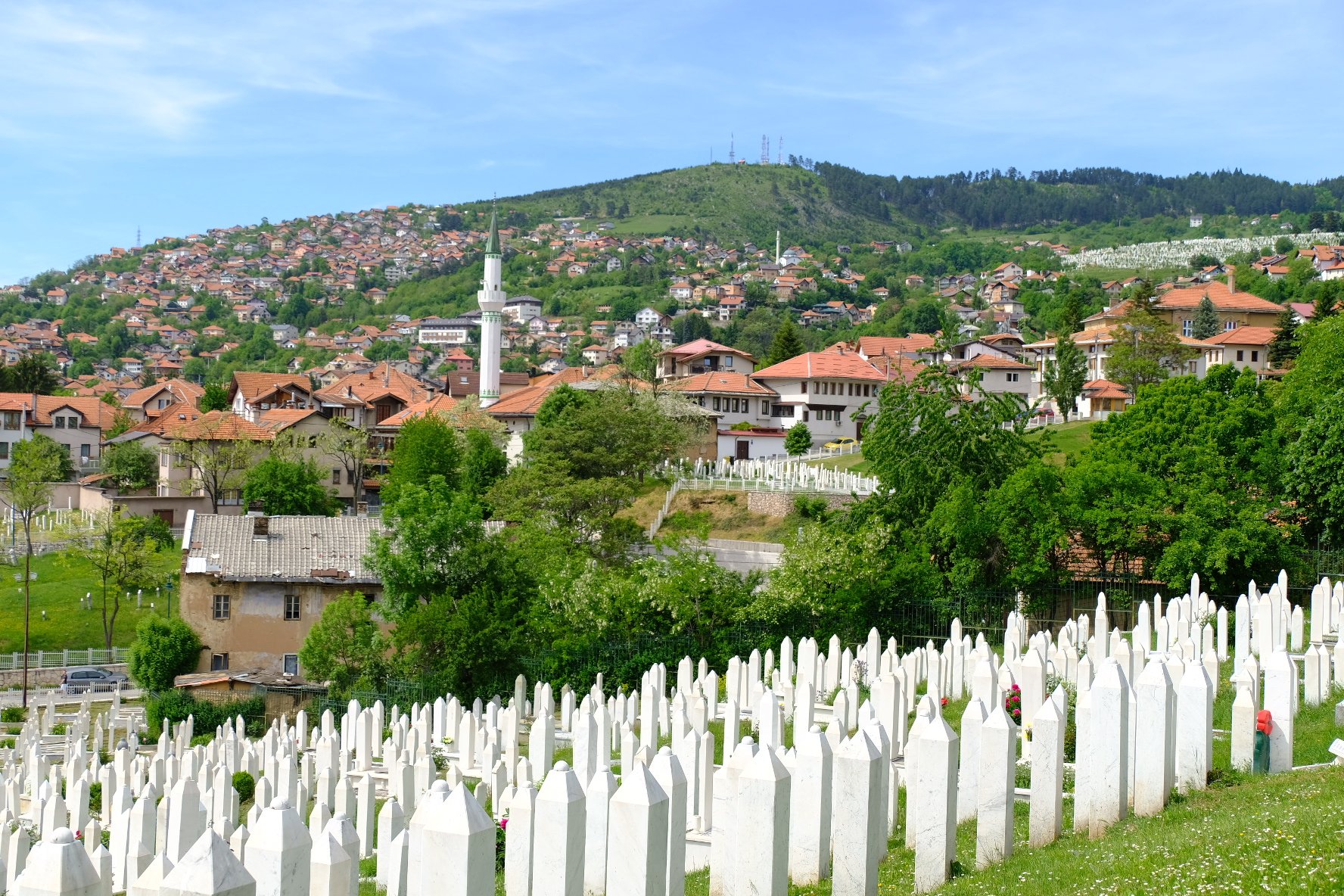The Dangers of Historical Revisionism
by Bryan Carey
On Saturday, May 16, police sealed off the area around Sarajevo’s Catholic Cathedral, where Bosnian Archbishop Cardinal Vinko Puljic said mass to a congregation of few dozen Croat dignitaries and priests. The US and Israeli embassies and the World Jewish Council condemned the mass, as did Bosnia’s own three-member presidency and many others. Thousands of Bosnians, many wearing masks, demonstrated that same day agains the mass.
But why all the uproar over a Catholic mass in Sarajevo?
Bosnia’s Catholic Church held the mass to commemorate Croatian Nazi-allied Ustaša soldiers and civilians killed in Bleiburg, Austria at the end of World War II as they fled from Allied forces. Tens of thousands of soldiers and civilians were killed as or after they surrendered to Allied forces, many after being identified as Ustaša soldiers, perpetrators of mass atrocities at the Ustaša’s infamous concentration camps, or supporters of the Ustaša regime. There was not a clear system of justice in the post-war period, and there were certainly many civilians and prisoners of war who were unjustly killed.
On the other hand, to commemorate these Ustaša soldiers and pro-Ustaša civilians as primarily victims misses the larger picture. The Nazi-puppet Ustaša regime had applied Nazi racial laws during World War II and then set up concentration camps through its territory, including the infamous Jasenovac camp, in which 20,000 Jews, 320,000-340,000 Serbs, and 30,000 Roma were killed among many others. Commemorations like the annual events at Bleiberg and the mass in Sarajevo this past Saturday are occurring while Croatia is seeking to cover up and even deny their own culpability in mass atrocities.
Dunja Mijatovic, the Council of Europe Commissioner for Human Rights, said the mass “risks becoming a glorification of those who supported the Nazi-allied fascist Ustaša regime, complicit in the death of hundreds of thousands of human beings.”
Commemorations in honor of Croatian Nazi-allied soldiers and their deaths at Bleiberg, Austria played a large role in Croatia’s ethnic mobilization and nation-building narrative during the 1990s breakup of Yugoslavia. During the 1990s, these commemorations had been held in Bleiburg and were regularly attended by high-ranking Croat politicians, which served to both feed into a Croat narrative of victimization while also fueling fears on the part of Serbs that Croatian nationalism would leave them as a persecuted minority. More recently, Austria itself banned the event since it has become known infamously as Europe’s “most significant neo-fascist holiday” and become a hub for neo-fascist Ustaša sympathizers and other neo-Nazis.
Zvonimir Nikolić, a Croat Catholic and 57-year-old economist in Sarajevo, called the mass a “disaster for Sarajevo.”
“It is not normal that a city such as Sarajevo, which was terrorised so much in both World War II and the last war (in the 1990s), allows something like this to happen… Sarajevo is among a few cities in the world where this mass should never be held because the regime it commemorates committed monstrous crimes in Sarajevo.”
Croatia is increasingly under fire for historical revisionism, a process in which they are trying to rewrite their history in a way that is advantageous to their nationalistic goals. The annual commemorations of Bleiburg aren’t just celebrated by the neo-Nazi fringe. These commemorations are held with the support of Croatian parliamentarians who are trying to reshape the Croat collective understanding of their own history.
This collective forgetfulness about (or active negation of) the ugliness of their own past re-traumatizes Serbs who are witnessing the glorification of a history that resulted in hundreds of thousands of their family members being killed.
But this isn’t just a problem for the Balkans or for Croatia. We do the same thing in the States.
It’s easy to look back on our collective history and highlight only those events and stories that make us look like victims without looking at the whole picture and the ways in which we have victimized others.
Instead, if we are to contribute to a society where everyone feels welcome and safe, we must be willing to look at and lament the dark parts of our history. That’s the difficult part of peace and reconciliation work. It’s not just about getting along and being polite with one another.
Rather than glossing over the uncomfortable parts of our history, peace work requires acknowledgement of and repentance for the wrongs that our people have committed. Without acknowledging those past wrongs and listening to the stories of those who have been impacted, it’s not possible to move toward trust in divided societies.











